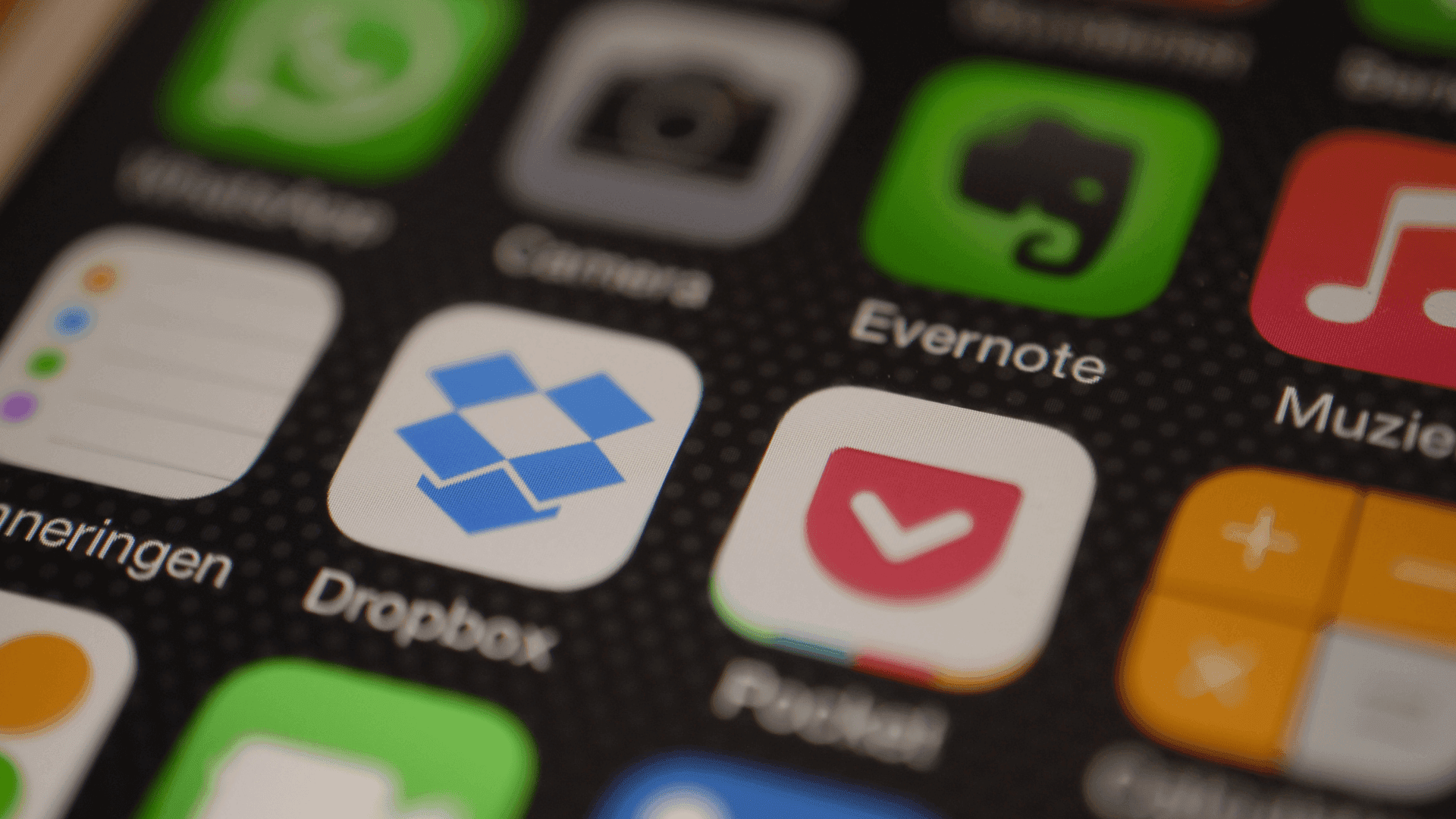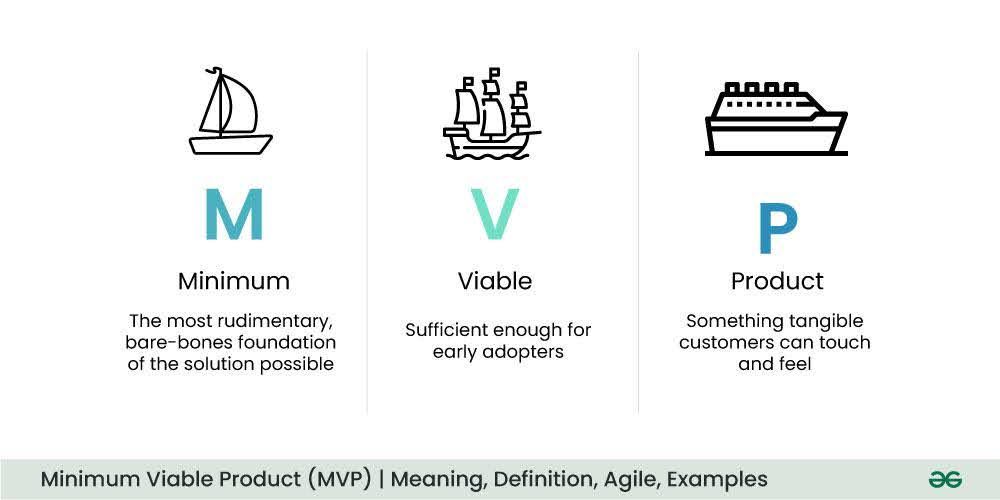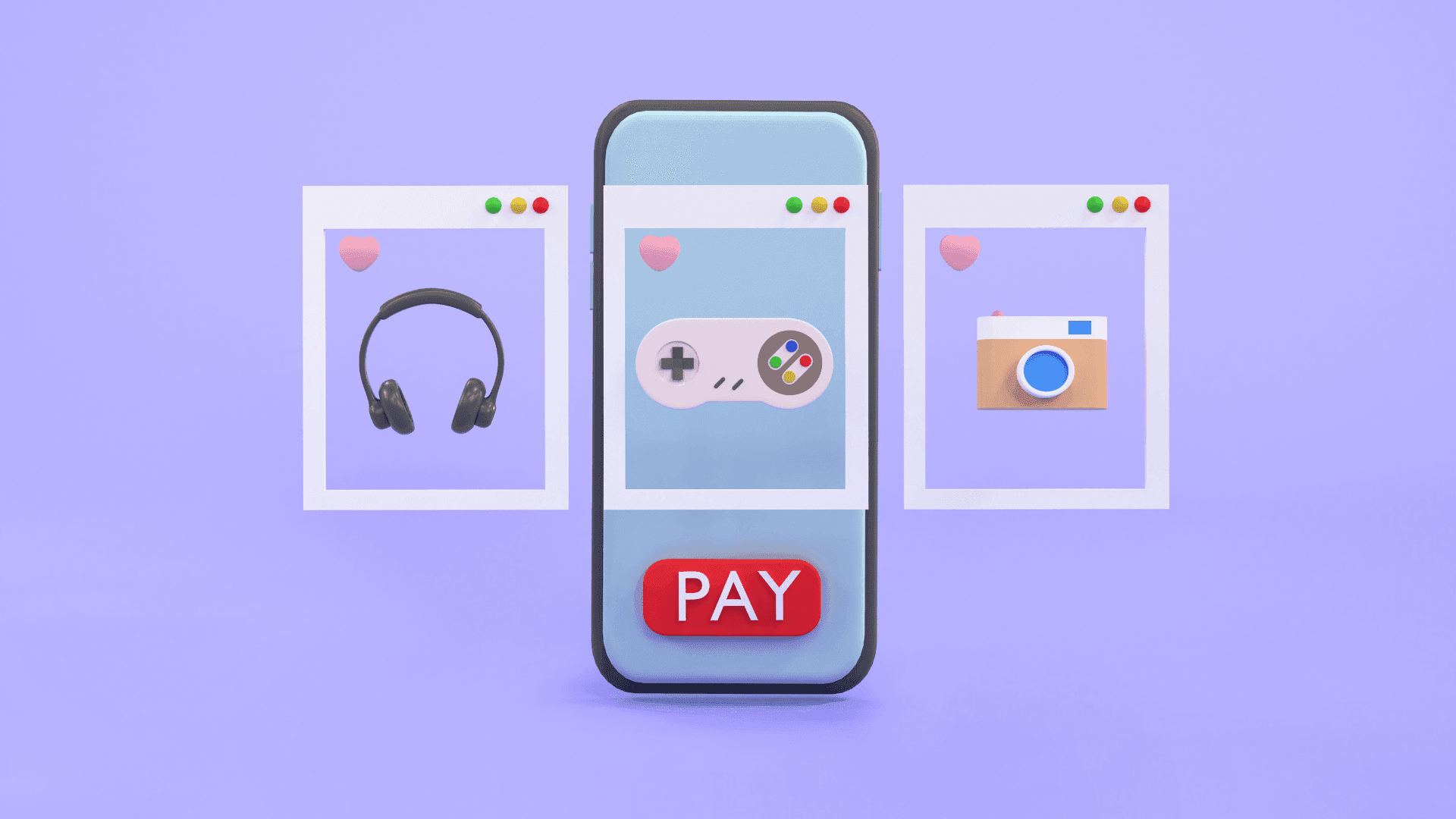business resources
App Development Business: How to Start an App Development Company
13 Jun 2025, 3:49 am GMT+1
Want to start an app development business but not sure where to begin? With billions of users and a booming mobile economy, launching a successful app can be a real business, not just a side project.
If you’re new to all this, treat this guide as your 101 on how to start an app development business. We’ll walk you through how to launch an app from scratch, covering everything from idea validation to building, monetization, and growth strategies.
Why the Mobile App Development Business Is Still Worth It
Let’s start with the big picture.
The mobile app economy hasn’t slowed down; in fact, it’s grown even more competitive, profitable, and wide-reaching in 2025.
According to recent projections, the global mobile app market is expected to hit over $613 billion in revenue by the end of 2025, up from $522 billion in 2024. That growth is fueled by in-app purchases, subscriptions, and mobile ads, not just app downloads.
Here’s what that means for you:
- Over 97% of global app revenue now comes from free-to-download apps, powered by smart monetization inside the app.
- Apple’s App Store and Google Play combined host nearly 5 million apps, yet new tools and platforms keep lowering the barrier to entry, making it possible for solo devs or small teams to compete with bigger studios.
- Daily time spent on mobile apps now averages over 4.5 hours per user. According to Statista, this varies by region - for example, users in Indonesia spent over 6 hours per day on apps in 2023. Thailand followed with 5.54 hours, while Germany and Australia averaged around 3.4 hours daily. But regardless of location, the trend is clear: mobile engagement is climbing steadily, and users are spending more time in apps than ever before. Entertainment, health, fintech, utility, and AI tools are driving the most engagement.
- Even niche tools, like photo cleanup apps, meditation timers, or habit trackers, can rack up millions of downloads with the right positioning and value.
So starting a mobile app development business in 2025 still makes a ton of sense, as long as you’re solving a real problem and approaching it like a business, not a side hustle. The market is massive, the tools are accessible, and the opportunities are wide open.
7?Step Roadmap to Launching an App Development Business
Ok, now let’s talk about what it actually takes to build a successful app development business. To make it simple and actionable, we broke the entire journey into 7 steps. Whether you’re starting solo or with a small team, this roadmap will help you get started.
Step?#1. Validate Your App Idea
This is the step too many people skip (and it’s usually why they fail).
According to CB Insights, 42% of startups shut down because there was “no market need.” In other words, the idea wasn’t bad - it just wasn’t necessary. So before you spend a dime on development, make sure there’s a real problem to solve and people who care enough to want it solved.
Here’s how to validate your app idea the right way:
- Find 10–20 people in your target audience and just ask questions. What frustrates them? What are they currently using? What’s missing? You’re not pitching - you’re listening. This is how apps like Notion, MyFitnessPal, and Headspace found early traction - they started by solving simple, real-world problems people were already struggling with. If someone says “I’d pay for that” without being prompted, you’re on the right track.
- Go into the App Store and search for similar apps. What do they do well? What do people hate? Read the 1-star reviews - they’re a goldmine of what not to do. You don’t need to reinvent the wheel, but you do need a better or more focused version. Take the popular category of iPhone cleaners, for example, Clever Cleaner didn’t invent iPhone cleaning. It just made it way simpler - and completely free, with no ads or upsells. Among competitors that tend to paywall everything to death, this app stood out by being 100% honest with users from the start. That alone helped it climb from a brand-new app to #94 in Productivity in a short time. Now it consistently features in roundups of the best ones in its category. That kind of visibility is what you can earn just by doing one thing well and being honest with your customer. Of course, that doesn’t mean you’ll monetize right away, but it can put your app on the map. And that’s half the battle.

- Before building anything, create a simple page explaining what your app will do and who it’s for. Add a call to action: “Join the waitlist,” “Get early access,” or even “Pre-order.” Then promote it with a small ad budget or through relevant forums or communities. If people sign up or share, that’s real interest.
- Run a few short TikTok, Instagram, or Reddit ads around your app concept. You don’t even need the app yet - just a pitch and a link. Watch what grabs attention, what flops, and what people comment on. You’ll learn fast.
- (Optional) build a prototype. If you want to go one step further, use a free tool like Figma or Framer to design a clickable mockup of your app. You can test it with users or investors without writing a single line of code.
The goal isn’t to get compliments. It’s to get action. If people are signing up, asking when it’s launching, or handing over emails or money, that’s a good sign. If not, tweak the idea and try again.
Validating your idea may take a few tries (or maybe more than a few), but it’s the fastest way to avoid building something nobody wants.
Step?#2. Sketch Your Business Game Plan
If you want this to be more than a side project, you need to start thinking like you’re building a real app development business. That means planning. Not the boring corporate kind, just the practical, common-sense stuff that keeps your idea from going off the rails.
Let’s talk money first. We already mentioned that more than 97% of app revenue comes from free apps, not paid downloads. These are apps that know how to earn once the user’s inside. So if your plan is “I’ll charge $4.99 upfront,” cool - but just know you’re swimming upstream. That’s why most of the best ones go with freemium or subscriptions. Notion? Free. MyFitnessPal? Free, with paid features if you want to go deeper. Subscriptions work great if your app solves an ongoing problem: fitness, budgeting, habit tracking, stuff like that. Ads can work too, especially for games or high-traffic apps, but be careful - they can make or break user experience fast.

Now, how much does it cost to actually build an app. If you’re handling design and dev yourself, and you keep things lean, you could get a functional app off the ground for $5K–$10K. If you hire help or aim for a polished product from the jump, you’re probably looking at $30K–$50K+. That includes development, testing, branding, App Store fees, basic legal stuff (terms of service, privacy policy), and maybe some marketing.
So here’s what you do: step back and treat this like the start of your app development business. Not just a build. Who is your app for? What’s the core value? How will it grow? And what does success even look like for you: 10,000 downloads? 100 paying users? $1,000/month?
Write it down. Doesn’t need to be pretty. Just be clear with yourself about what you’re building and why. At the end of the day, the goal isn’t to have a flashy app with zero users. It’s to build something real.
Something that lasts.
Step?#3. Pick Your Tech Stack & Platform
Alright, you’ve got your idea. You’ve validated it, figured out how it might make money, and you’re not trying to build the next everything app on day one. Great. Now comes the fun part: building it.
Here’s the smart way to approach it.

Decide what you’re building on. Are you starting with iOS, Android, or both? If you’re aiming for reach, here’s a little context: 87% of mobile developers globally were building for Android in 2023, while only 58% were working on iOS apps. That gap isn’t surprising - Android dominates in global market share and offers more flexibility. But if your audience is mostly in the U.S., or your app is tied into the Apple ecosystem (think: photo management, widgets, privacy), iOS might still be your best first move.
If you're not sure, cross-platform tools like Flutter or React Native let you target both with one codebase. Plenty of startups go that route - it saves time and dev costs, and you get double the distribution without double the work.
Step?#4. Build a Minimum Viable Product (MVP)
You don’t need everything at once. You just need a Minimum Viable Product - the smallest version of your idea that solves one real problem. That’s it. We always recommend not getting bogged down trying to build an all-in-one app right out of the gate. That’s how projects stall (or worse, never launch). Focus on doing one thing well. Fast and useful beats bloated and buggy every time.

- If you’re not a developer, this is the point where you’ll need to bring in help. You can hire freelancers (look for people with real app store experience), work with a small agency, or even use a no-code/low-code tool if your idea is simple enough. Plenty of successful apps started that way. The key is getting something working - not perfect, but usable.
- And if you are a developer? Amazing. But don’t let perfection slow you down. Shipping something decent in 6 weeks is better than sitting on something “almost ready” for 6 months. Many devs make this mistake - they keep tweaking, refining, rebuilding… and never launch. Perfection is your enemy here. While building, keep reminding yourself: your goal isn’t to impress investors or make a press release. Your goal is to solve a problem for a real person who will use this app and say, “This is exactly what I needed.”
When it’s ready, launch it. Don’t wait for the stars to align or for every pixel to feel perfect. Just launch.
Step?#5. Launch & List Correctly
Put your app on the App Store or Google Play. Keep the listing simple - write a short, clear description that focuses on what the app does, not what it could do someday. Add honest screenshots that show the value right away. And don’t skip the boring part: read the platform guidelines. Seriously.
Spend some time looking through App Store or Play Market forums, there are tons of posts from developers who can’t figure out why their app got rejected. It happens all the time. Sometimes it’s something minor like metadata formatting, other times it’s stuff like missing privacy disclosures. Either way, if you don’t want to waste weeks going back and forth with reviewer emails, it’s worth getting familiar with the rules before you hit submit.
Remember: you don’t need a huge audience at first. Share it in niche forums, relevant Reddit threads, Facebook groups, or wherever your target users hang out. Ask for feedback. Watch what confuses people. What they like. What they ignore.
That first batch of users? Pure gold. They’ll tell you what’s working and what isn’t, and if you listen, your app will get better fast.
Step?#6. Grow (ASO, Marketing & Retention)
We know that launching an app already took tons of work. But in reality, it’s just the beginning. Getting your app out there is one thing. Growing it into an actual business? That’s where things get real.
Let’s start with ASO (App Store Optimization). It’s like SEO, but for apps. Most people discover new apps by searching, so your title, keywords, and description actually matter. Use terms people are already typing in. Keep your title clear. Don’t try to be clever - be searchable. Your screenshots and app icon? Think of them as your first impression. If they don’t pop, you’re getting skipped.

Once your listing is dialed in, it’s time to actually drive traffic to it. Organic growth is great, and yes, it still happens, but it needs help. This is where your marketing channels come into play.
Social media isn’t optional anymore. But that doesn’t mean you have to dance on TikTok (unless you want to). What matters is showing up where your users are. If you’re building a budgeting app, try Reddit’s r/personalfinance. If it’s fitness, go where the runners, lifters, and yoga folks hang out. Share tips, be helpful, and when it makes sense, drop your app - not in a spammy way, but as a genuine tool that solves a problem.
Now let’s talk paid. You don’t need a massive ad budget to start - just something to test with. Run targeted ads on Instagram, YouTube, or TikTok with a short pitch and a clean visual. App Store ads (Apple Search Ads or Google UAC) can also be super effective if you pick the right keywords. Watch your cost-per-install (CPI), but more importantly, track who stays. Not just who clicks.
Speaking of traction, don’t underestimate influencers. And no, you don’t need to hire someone with a million followers. Micro-influencers (people with 5K to 50K followers) often have tighter communities and way better engagement. A simple story post or short demo can do wonders if it's coming from someone their audience trusts.
Now that people are finding and trying your app, the next question is: do they stick around?
This is where retention and engagement come in. Push notifications? Great tool when used with restraint. Helpful reminders work. Random spam doesn’t. You’ve got to be smart about it. Set up gentle nudges - like a reminder after three days of inactivity, or a quick “well done” when someone hits a milestone. These small touches add up.
But here’s the reality check: retention is brutal. According to Statista, Android apps see just 2.1% retention after 30 days. iOS apps do slightly better at 3.7%, but still, that’s not great. So yeah, you need to work really, really hard to keep people around. And that means giving them a reason to come back.
Step?#7. Lock Down Ops, Legal & Analytics
This step is not as exciting as launching or going viral. But if you’re serious about turning your app into a real business, then you’ve got to get your operations and legal stuff in order early. It saves you time, headaches, and possibly money down the road.

- First things first: register your business. Whether it’s an LLC or something else depends on where you live, but it’s worth getting some legal structure in place. It makes taxes easier, gives you protection, and makes things like opening a business bank account or working with contractors way smoother.
- Next, grab your developer accounts. Apple charges $99 per year to publish on the App Store. Google charges a one-time $25 fee. You'll need these to even get your app in front of users, so do it early and make sure you're using a dedicated business email, not your personal one.
- Then there's the fun stuff - privacy policies and data compliance. Even if your app doesn’t collect much personal info, you still need a privacy policy. Both Apple and Google require it, and if you have users in the EU or California, you need to be compliant with GDPR and CCPA. Don’t panic - you can use generators like Termly or iubenda to create a solid policy. Just don’t ignore it.
- Now let’s talk about monetization tools. If you’re running subscriptions or in-app purchases, RevenueCat is one of the easiest ways to handle it across both iOS and Android. It takes care of receipts, billing logic, and makes your life a lot simpler. For ads, tools like AdMob, IronSource, and AppLovin are still solid options depending on your app category.
- Behind the scenes, you also want to set up your tracking and analytics from day one. Don’t wait. Use Firebase, Mixpanel, or Amplitude to monitor what users actually do inside your app. Where do they drop off? What features are ignored? What’s keeping them around? That data is what helps you grow without guessing.
- And don’t forget customer support, even if it’s just you at first. Use something like HelpScout or even a basic email inbox, but make sure people can reach you. Replying quickly (and kindly) can turn a one-star review into a loyal user.
Final Words
And here’s the final bit of advice: track everything, and scale smart. You don’t need to chase every metric or launch with a team of ten. You just need to keep your eyes on what matters - user feedback, product performance, and slow, steady growth.
Build from a strong foundation, and the rest gets easier.
Some people might think that starting a successful app development company is all about luck. And sure, luck plays its part in just about everything in life. Right timing, the right mention, the right person stumbling across your app? It helps. But not nearly as much as people think.
It’s all about execution. Clear decisions, small wins, smart launches, consistent updates - that’s what actually moves the needle. And now, you’ve got a plan.
Share this
Contributor
Staff
The team of expert contributors at Businessabc brings together a diverse range of insights and knowledge from various industries, including 4IR technologies like Artificial Intelligence, Digital Twin, Spatial Computing, Smart Cities, and from various aspects of businesses like policy, governance, cybersecurity, and innovation. Committed to delivering high-quality content, our contributors provide in-depth analysis, thought leadership, and the latest trends to keep our readers informed and ahead of the curve. Whether it's business strategy, technology, or market trends, the Businessabc Contributor team is dedicated to offering valuable perspectives that empower professionals and entrepreneurs alike.
previous
Why Consistency is Key: Growing Watch Hours with Steady Content
next
The Humanoids Robot Economy- Part 1